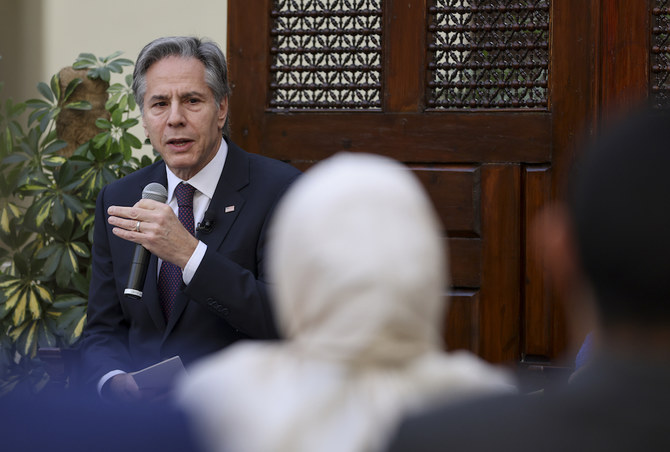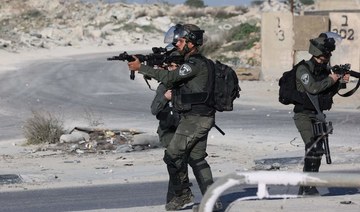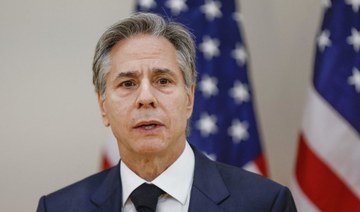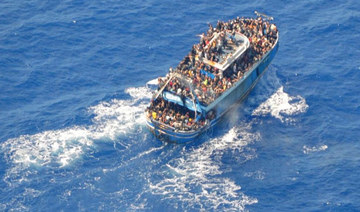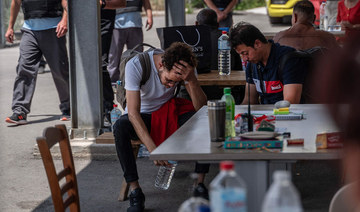CAIRO: The US has affirmed its support for Egypt’s economic, social and political development, according to a report issued by the Office of the Spokesperson for the Ministry of Foreign Affairs and published it on its website.
This comes amid the visit of US Secretary of State Antony Blinken to Egypt as part of a three-day tour of the Middle East.
The report titled “The US-Egypt Relationship” outlines America’s policies towards various challenges in Africa and the Middle East. The visit takes place as the security situation deteriorates in Israel and Palestine.
Blinken will travel on Monday and Tuesday to Jerusalem and Ramallah after his stop in Cairo.
The report states that the US and Egypt are cooperating closely to de-escalate conflicts and promote sustainable peace, including by supporting UN mediation to hold elections in Libya and to restore a civilian-led democratic transition in Sudan.
Also, the US and Egypt share an “unwavering commitment to a negotiated two-state solution as the only path to a lasting resolution of the Israeli-Palestinian conflict and equal measures of security, prosperity, and dignity for Israelis and Palestinians.”
Building on Egypt’s peace with Israel, the US and Egypt are partnering to foster further regional cooperation, including through the Negev Forum process, the report states.
The American government was also engaged with Egypt, as well as Sudan and Ethiopia, to “advance a swift diplomatic resolution of issues over the Grand Ethiopian Renaissance Dam that safeguards the interests of the three parties.”
On the economic side, it noted that there remains “a shared commitment between the US and Egypt to enhance bilateral economic cooperation for the mutual benefit of the two peoples, including through expanding trade, increasing private sector investment, and cooperation in clean energy and climate technology.”
According to the report, the US has invested $600 million to digitize Egypt’s telecommunications sector, and Egypt has imported $5.9 billion from the US to construct, expand, and modernize Egyptian infrastructure to meet the needs of a growing population.
The State Department confirmed that the US and Egypt have committed to establishing a Joint Economic Commission that will further enhance cooperation on all economic and commercial issues.
Within the framework of developing relations between the two peoples, the US State Department said that more than 20,000 Egyptians have participated in US government exchange programs, and 450 Egyptians travel to the US annually on professional and academic exchange programs facilitated by the US Embassy in Cairo.
The US and Egypt renewed their Memorandum of Understanding in November 2021, which strengthens protections for Egypt’s cultural patrimony and enables bilateral cooperation to disrupt the trafficking of archeological artifacts and cultural objects, the report states.
On the climate side, the US welcomed Egypt’s ongoing leadership through the COP27 presidency to accelerate global change.
According to the fact sheet, the US is providing $10 million to support the launch of the Cairo Center for Learning and Excellence on Adaptation and Resilience, which will build adaptation capacity across Africa.
The US State Department affirmed that Egypt remains an important partner in combating terrorism, anti-trafficking, and regional security operations that enhance US and Egyptian security.
It added that since 1978, the US has contributed more than $50 billion in military assistance, which has contributed to Egypt’s capabilities to protect and defend its land and maritime borders and to confront an evolving terrorist threat, including in the Sinai Peninsula.
The State Department recalled that the US and Egypt established diplomatic relations in 1922 in a letter addressed by President Warren G. Harding to King Ahmed Fouad.
This “deep partnership has proven its flexibility over the past century in the face of changing circumstances as Egypt seeks to build a stable and prosperous future that advances rights and fundamental freedoms for all citizens.”
It added that the US firmly believes critical partnerships like the US-Egypt relationship are stronger when there is a shared commitment to human rights.
“We maintain an active dialogue that seeks to reinforce tangible steps to promote freedom of expression, end political detention and strengthen the rule of law, and undertake critical judicial reforms, including with respect to pre-trial detention reforms, in line with Egypt’s National Strategy on Human Rights,” the US report states.



